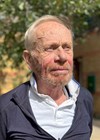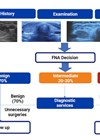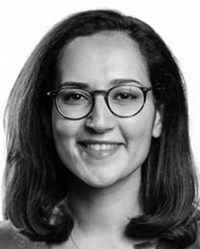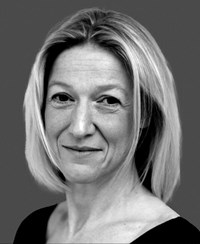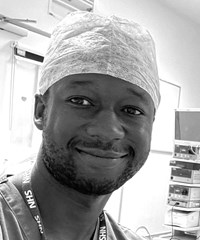ENT features
From surgeon to scholar: the remarkable life of Philip Stell
Professor Philip Stell was an extraordinary man: following an astonishingly illustrious career in ENT, he excelled as a medieval historian. With the Philip Stell Prize due to be awarded in May, his friend Pat Bradley looks back at his remarkable...
Advanced in-office awake rhinology
In-office awake rhinology transforms sinonasal care, offering safe, cost-effective, minimally invasive procedures with rapid recovery and high patient satisfaction. In recent years, the landscape of otolaryngological surgery has undergone a remarkable transformation with the advent of in-office awake surgical procedures....
What can be done to encourage training doctors to pursue a career in paediatric ENT?
Paediatric ENT is often considered the ‘Cinderella’ subspeciality within otolaryngology. There are efforts in the UK and overseas to redress the balance. Paediatric ENT is a specialised field that addresses the unique needs of children with otolaryngological disorders. Despite its...
Centenary birthday of Jean-Marc Sterkers: pioneer of vestibular schwannoma surgery
Professor Jean-Marc Sterkers has been a leading figure in the field of otology and neurotology for several decades. On the verge of his 100th birthday, we celebrate an exceptional career through the memories of his son and colleagues. Prof Olivier...
Victoria Possamai, Consultant Paediatric ENT Surgeon - A Tribute
Victoria Possamai, Consultant Paediatric ENT Surgeon, Evelina London Children’s Hospital. 30 August 1977 – 6 December 2024 It is with great sadness that we reflect on the loss of our wonderful colleague and friend Victoria ‘Vikki’ Possamai, Consultant Paediatric ENT...
The impact of vocal care and oral health on laryngeal function and voice
Maintenance of epithelial health relies on a number of measures. We hear about hydration, irritants and biofilms from a team in Helsinki. Oropharyngeal health Vocal hygiene is a commonly used term that refers to the personal daily habits contributing to...
Cocaine-induced ENT pseudo-GPA (CIEpGPA): an underdiagnosed entity
Cocaine-induced ENT pseudo-GPA is increasingly seen in our ENT clinics. The authors of a new ENT UK guideline offer a concise overview for day-to-day recognition and management. Use of cocaine has steadily increased in Europe since 2010 and now represents...
Jarrod Homer and Stuart Winter: Development of the sixth edition of the UK multidisciplinary head and neck cancer guidelines
Head and neck cancer care is a complex and constantly evolving field. What’s new and how are national guidelines on the subject produced? We spoke to Professors Homer and Winter, the lead authors of the most recent edition of the...
Andreas Wagner: ESPO 2025 keynote speaker
The keynote speaker for ESPO 2025 in Stuttgart is renowned evolutionary biologist and author Professor Andreas Wagner, from Zurich. Prof Wagner will focus on the congress theme of ‘Innovation’, giving us his unique perspective on how evolution drives human creativity....
In conversation with George Browning, author of Browning’s Audiology for Clinicians
Professor George Browning. It is one of those superbly bright August mornings in London’s West End. It gives Lamb’s Conduit Street, where I’m meeting George Browning, an almost timeless feeling. The café we meet at is bustling and noisy, and...
Laryngeal transplantation: is it a thing?
Few organs could be said to be more complex than the larynx when it comes to transplantation. Martin Birchall looks at past challenges, current issues and future prospects. I am not clear exactly why I chose to spend a life...
The challenges in the risk stratification of thyroid nodules and cancers: the role of molecular testing
Around the world, molecular testing is becoming more widely used to personalise the management of thyroid nodules. Thyroid nodules are relatively common. They are palpable in ~5% of the population, while high-resolution ultrasound (US) incidentally finds them in 19–68% of...











